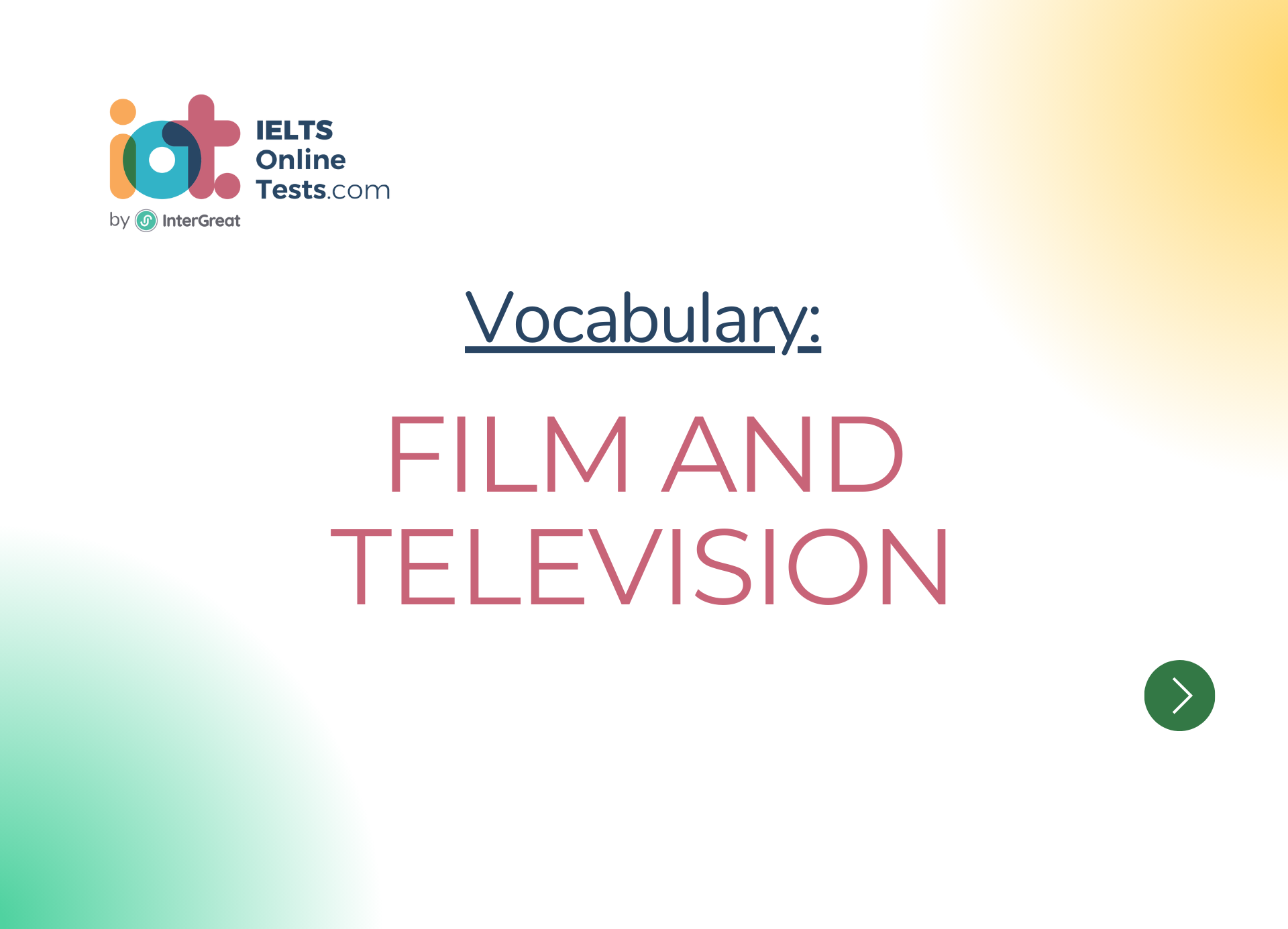
Film and television
Below is a detailed list of vocabulary related to "Film and television" suitable for IELTS band 6.5-8.0:
Cinematography:
- Definition: The art and technique of film photography, including camera angles, framing, lighting, and composition.
Editing:
- Definition: The process of selecting and arranging shots to create a cohesive and engaging narrative.
Screenplay:
- Definition: The written script of a movie or television show, including dialogue, action, and scene descriptions.
Plot:
- Definition: The sequence of events that make up the main storyline of a film or TV show.
Character Development:
- Definition: The process of building and evolving the personalities and traits of the characters in a story.
Genre:
- Definition: The category or type of a film or TV show, such as comedy, drama, action, horror, etc.
Narration:
- Definition: The act of telling a story, either through a voiceover or the perspective of a character.
Special Effects:
- Definition: Visual or digital effects used to enhance or create elements that cannot be achieved in real life.
Soundtrack:
- Definition: The music and sound effects used in a film or TV show to enhance the overall experience.
Dialogue:
- Definition: The spoken words and conversations between characters in a film or TV show.
Sequel:
- Definition: A film or TV show that continues the story of a previous movie or series.
Prequel:
- Definition: A film or TV show that tells the story that occurred before the events of the original movie or series.
Cast:
- Definition: The group of actors and actresses who play the characters in a film or TV show.
Director:
- Definition: The person responsible for overseeing the artistic and creative aspects of a film or TV show.
Producer:
- Definition: The person or team responsible for the financial and organizational aspects of a film or TV show.
Box Office:
- Definition: The revenue generated by a film through ticket sales in theaters.
Ratings:
- Definition: The audience classification or age restrictions assigned to a film or TV show based on its content.
Censorship:
- Definition: The process of restricting or removing content from a film or TV show deemed inappropriate or offensive.
Premiere:
- Definition: The first public showing of a film or TV show.
Screening:
- Definition: A private showing of a film or TV show for a selected audience, such as critics or industry professionals.
Critics:
- Definition: Reviewers who analyze and evaluate films or TV shows, often influencing public opinion.
Audience:
- Definition: The viewers or listeners of a film or TV show.
Teaser:
- Definition: A short preview or promotional trailer of a film or TV show.
Opening Credits:
- Definition: The sequence of names and titles displayed at the beginning of a film or TV show.
Closing Credits:
- Definition: The sequence of names and titles displayed at the end of a film or TV show.
Screenwriter:
- Definition: The person who writes the screenplay or script for a film or TV show.
Storyboard:
- Definition: A visual representation of each shot and scene in a film or TV show, used during the planning and production process.
Oscar:
- Definition: The prestigious award presented annually for excellence in cinematic achievements.
Emmy:
- Definition: The award presented annually for excellence in television programming.
Cinematic Language:
- Definition: The visual and storytelling techniques used in film and television to convey emotions and ideas.
Art Direction:
- Definition: The design and aesthetics of the sets, costumes, and overall visual style of a film or TV show.
Auteur:
- Definition: A filmmaker or director who has a distinctive and recognizable style and artistic control over their works.
Screen Test:
- Definition: An audition for actors to showcase their talent and suitability for a role in a film or TV show.
Drama Series:
- Definition: A serialized television program focused on character development and narrative arcs.
Reality TV:
- Definition: Television programs that feature unscripted real-life situations and interactions.
Documentary:
- Definition: A non-fiction film or TV show that presents real events, people, or topics.
Animation:
- Definition: A filmmaking technique using sequences of images to create the illusion of movement, often used in cartoons and animated films.
Cameo:
- Definition: A brief appearance or guest role by a well-known actor or celebrity in a film or TV show.
Dolly Shot:
- Definition: A moving shot taken from a camera mounted on a dolly or wheeled platform.
Cinematic Experience:
- Definition: The overall impact and emotional engagement of watching a film in a theater.
By incorporating these vocabulary words into your studies and practice, you can enhance your language proficiency and be better prepared for the IELTS exam. Best of luck!




